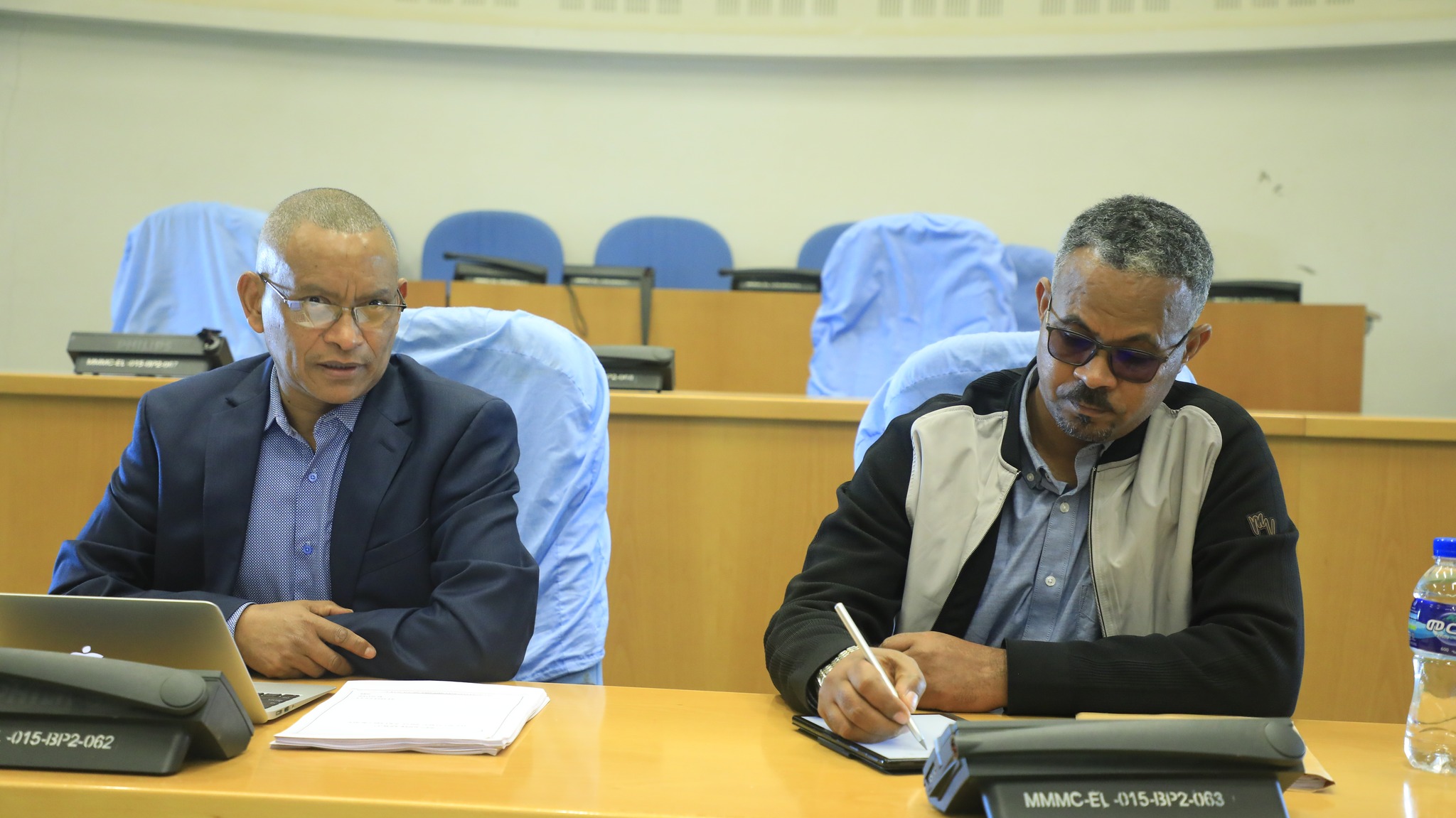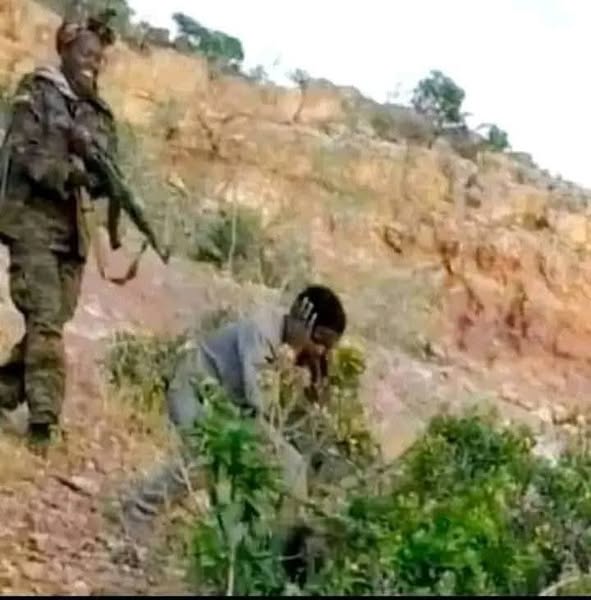Mekelle, Tigray January 18,2025 (Tigray Herald)
Leaning on Mercy and Grace: Ethiopian seminarians prepare to offer post-war healing
The bishop’s voice trembled as he recounted the horrors of the two-year war that terrorized the people in his eparchy in Ethiopia’s northern Tigray region.
“Our own faithful, dragged out of their celebration on Christmas, massacred. Priests taken from the altar while celebrating liturgy on Christmas,” said Abune Tesfaselassie Medhin of the Ethiopian Catholic Eparchy of Adigrat. “Myself included; I was dragged from my cathedral and surrounded by killer forces. But my priests shielded me, and, with God’s miraculous protection, we survived.”
The bishop painted a haunting picture of his local Church in the crosshairs of war. Where previously people of diverse backgrounds coexisted peacefully, nothing was exempt from the violence.
In November 2020, a bloody armed conflict erupted between the Tigray People’s Liberation Front and the Ethiopian National Defense Force, backed by the Eritrean Defense Forces.
By mid-2021, more than 5.2 million people—almost the entire population of Tigray at the time—required emergency food assistance, and hundreds of thousands lived in famine-like conditions. Sexual violence had surged, and 2,204 survivors had sought medical help.
By the time a cease-fire came into effect in November 2022, an estimated 600,000 civilians had been killed and 2.6 million people were internally displaced. An estimated 10,000 people, mainly women and girls, were victims of sexual violence as a tactic of war.
“We have witnessed a genocide by every standard,” the bishop said, his eyes heavy with the weight of untold stories. “Our women suffered unspeakable violations.”
Clutching the armrest of his chair, he added: “Very little has been said about what happened, but believe me, the truth will come out one day.”
Nearly two years later, in October 2024, about one million people were still displaced within Tigray, according to the U.N. Office for the Coordination of Humanitarian Affairs (OCHA). Catholic Relief Services also reported nearly 4 million people faced food insecurity exacerbated by last year’s drought.
Access to health care and education remained severely restricted. More than 88 percent of educational institutions and 77 percent of health facilities were damaged in the war, said Daniel Zigta, the eparchy’s education coordinator.
Abune Tesfaselassie said the role of the church in the healing and rebuilding process has been vital. The Catholic population in the region numbers only 25,000 — about 0.4 percent of Tigray’s total population of nearly 6 million — and is served by 99 priests in 34 parishes. Although small, the local church extends its concern to all.
The eparchy’s pastoral workers and communities of women religious, particularly the Daughters of Charity, have been offering trauma recovery services, directing victims of sexual violence to hospitals for counseling and providing financial and medical assistance to those in need.
“It was really a test of faith, but by God’s grace, we survived.”
In order to accompany the people in healing and rebuilding in the years ahead, Abune Tesfaselassie said his seminary has adapted its curriculum to include courses on healing trauma, which recognize the devastating experiences of both the seminarians and the communities.
“This involves a new look at the pastoral subject, where you are addressing society, individuals, families,” he said. “They need, above everything else, healing.”
“Wounded healers have to target how to heal best, how to heal the wounds in yourself and in others.”
The eparchy is also establishing the Resilience and Peacebuilding Institute that will work toward community reconciliation and promote conflict resolution through training, community engagement and peacebuilding programs.
“I am hopeful for a better future,” said the bishop. “Although I know it will bring more complex problems.”
The Catholic Major Seminary of Adigrat is about 25 miles from the Eritrean border in the city of Adigrat. The eight-year program offers intellectual, spiritual, human and pastoral formation. Three years are dedicated to the study of philosophy, four years to theology, and one year to pastoral service. Exams are overseen by institutions affiliated with the Holy See, particularly Pontifical Urbaniana University in Rome.
Subdeacon Berihom Berhe was in seminary during the war. As the violence approached Adigrat in October 2021, he and 10 other seminarians fled on foot. They crossed the desert near Mount Asimba and survived on figs for a month.
“We hid, knowing people were being killed daily,” he recalls. Locals helped to sustain the seminarians, sharing the food they had. “They saw us as their children. Thanks to God, and then to my people, we survived.”
The seminarians returned to Adigrat after Eritrean forces left the area.
The subdeacon’s resolve to be ordained a priest, anticipated in 2025, has only grown through these challenges.
“As Christians, we believe in sacrifice,” he said. “What I learned during the war was that, even in the worst times, I could still help people, and that gave me strength. I hold on to hope that better days will come. Until then, I will continue helping those who need it most.”
Amaha Abebe had just begun his studies in theology when the war broke out.
“It was incredibly hard, not only because of the war but also because COVID-19 was spreading across the region. There were bombs and gunfire constantly,” he said. “It was really a test of faith, but by God’s grace, we survived.”
Mr. Abebe had his sights set on university when “something stirred” within him to enter seminary. The priesthood is more than a calling, it is a responsibility, he said.
“I saw the love, care and service priests provided to the community. Their dedication brought me joy and made me reflect deeply on my own path,” he said. “I know I’ve made sacrifices, and I’m prepared to make more for this vocation.”
Now in his seventh year of seminary, he believes rigorous formation is imperative.
“I know I’ve made sacrifices, and I’m prepared to make more for this vocation.”
“This generation is highly educated and aware of many things. If I want to guide them, I must be well-informed, both intellectually and spiritually,” he said. “As priests, we must balance secular and religious knowledge.”
Despite the reduced capacity of the seminary during the war, classes continued, and five seminarians were ordained to the priesthood: three for the eparchy and two for the Salesians of Don Bosco.
The Reverend Habtegabriel Zigta, seminary rector, said the past four years were a test of endurance. “We faced economic difficulties, lack of transportation and shortages of basic necessities, like electricity and water,” he said.
However, “formation under such circumstances makes you stronger,” said Abune Tesfaselassie. “It prepares you to serve people in the harshest conditions.”
The bishop recalled how dialogue and negotiation with the Eritrean soldiers intending to abduct him ended with the soldiers agreeing to take 13 vehicles, including an ambulance, instead. As towns burned and archives were destroyed, he hid crucial church documents.
“If I die, I want the history of my diocese to survive,” he said.
For months on end, the communication infrastructure in the region was cut. There was “no electricity, no ability to use phones, and no rule of law,” the bishop said.
“In Shire, priests and expatriate sisters were isolated for months with no word of their well-being,” he continued. “Messages were passed person-to-person when possible and, for long periods, they had no news of each other.”
“Although some priests had to flee life-threatening situations, the majority stayed, finding ways to serve their people despite the dangers,” he said of the commitment of his clergy to be present with their parish communities in their suffering.
“Our missionaries, our clergy, they remained in some areas even without food to eat,” he continued. “Where we could, we helped. Where we couldn’t, we remained.”
This past autumn, a third of the eparchy was still inaccessible, and the region was in a general state of disarray, despite the cease-fire. As well, several parishes were in areas occupied by Eritrean Defense Forces, says Father Habtegabriel.
The International Commission of Human Rights Experts on Ethiopia released a report in September 2023, indicating that the Eritrean Defense Forces, which were not signatory to the cease-fire agreement, maintained a continuous presence in Tigray and were “responsible for continuing atrocities.”
Subdeacon Berihom, whose family lives close to the border with Eritrea, confirmed that it “is under control of the Eritrean soldiers.” On his visit to the border area this past summer, he met with families affected by the violence, many of whom lost their children or their homes.
“They want to speak and have you listen to them,” he said. “Most of the people have been changed.”
With the same wartime resolve and commitment, the priests in these occupied areas maintain their presence, offering hope and support. Their ministry at times extends beyond spiritual care, intervening between armed forces and civilians, sometimes averting violence with gestures of peace or providing scarce food supplies.
“Christ suffered for humanity, and in the same way, the church, its followers, priests and missionaries must stay with the communities they serve during crises,” said the bishop.
“The only thing you can lean on is God’s mercy and God’s grace.”
Source vaticannews




